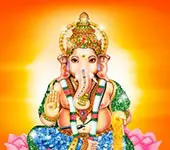Comments
Read more comments
The Childhood of Sardar Patel
Sardar Vallabhbhai Patel, the Iron Man of India, was compared to a cube of ice with fire inside. He appeared calm and quiet on the outside but was as fierce as a soldier within. A man of very few words, he was utterly devoid of hypocrisy. Whatever he had in his heart, he spoke without worrying about the consequences. Sometimes, this led to controversies, such as his speech at the Meerut Congress following communal riots.
Childhood plays a significant role in shaping great characters. For instance, Acharya Vinoba Bhave himself said that he acquired most of his qualities from his mother. Similarly, Sardar Patel inherited his warrior spirit from his lineage. He belonged to the line of Lava, Lord Rama’s son. Leuva Patels are descendants of Lava, and Kadva Patels are descendants of Kusha.
Born on 31st October 1875, Sardar Patel came from a family of farmers. His father, Jhaverbhai, was brave and valorous, having participated in the first struggle for freedom in 1857. At the age of 20, Jhaverbhai left home and joined the campaigns of Nana Sahib and Rani Lakshmi Bai of Jhansi. He was arrested by Malhar Rao Holkar at Indore but was later released when Holkar realized his talent in chess (Satranj). Jhaverbhai even taught Holkar some strategies before returning to Gujarat. He was a disciplined person, rising early during Brahma Muhurta and living a yogic lifestyle. He spent the later part of his life serving at the Swaminarayan Mandir, realizing that God is the supreme power.
Sardar Patel’s mother was a simple, noble, and tolerant lady, deeply patriotic. Such noble and courageous parents sowed the seeds of patriotism, firmness of character, honesty, self-restraint, and courage in him.
From his school days, Sardar Patel exhibited leadership qualities. At Nadiad, when a teacher pressured students to buy textbooks only from him, Patel organized a protest, leading to the school’s closure for six days. The teacher eventually relented. In another instance, Patel led a boycott against a teacher who caned children severely, ensuring that the teacher was reprimanded.
Sardar Patel completed his matriculation in Vadodara. In school, a Gujarati teacher, Master Chhote Lal, taunted Patel for not choosing Sanskrit. Patel replied boldly, saying, ‘If everyone takes Sanskrit, what will you do?’ This fearless attitude earned the teacher’s dislike. The teacher once assigned him the task of writing the multiplication table (Pada) a hundred times. Patel refused and joked that the Pada (buffalo calf) had run away. He convinced the headmaster that such tasks discouraged students.
Patel’s determination was evident even in small acts. Once, he removed a large stone blocking the path to school, a reminder of Chanakya’s resolve to uproot problems entirely. Leaders like Sardar Patel think more about others than themselves.
Patel began his career as a lawyer in Godhra. Early in his career, he handled a weak case. During a site visit, the judge and the opposing lawyer mocked him. The next day in court, Patel challenged the judge’s impartiality and successfully transferred the case to another court. This incident showcased his strategic thinking, much like his father’s skill in chess.
Sardar Patel’s elder brother, Vitthalbhai Patel, shared his fearlessness and straightforwardness. Both brothers were self-reliant and learned the value of hard work from their farming family background.
Sardar Patel’s intrinsic qualities—courage, integrity, and selflessness—made him the Iron Man of India and one of the foremost builders of the Indian Union. These traits, deeply rooted in his upbringing and experiences, continue to inspire generations.
Knowledge Bank
Apurva: The Invisible Link Between Rituals and Results
Apurva, in the Purva Mimamsa school of philosophy, refers to an unseen force generated by action, especially ritual actions. This force exists from the moment an action begins until its result is achieved, acting as the invisible link between the two. The concept of apurva explains how actions, particularly karmic or ritualistic ones, yield their intended outcomes, even when the results manifest much later. It underscores the continuity between effort and consequence, providing a philosophical basis for the workings of karma and ritual efficacy.
Hinduism teaches us to be..
kind and friendly to everyone. Not to harm anyone by action, words, or even thoughts.
Quiz
Recommended for you
Sri Suktam Explained - Part 9

Defeat of King Suratha

Defeat of King Suratha....
Click here to know more..Ganesha Gakara Sahasranama Stotram

asya shreeganapatigakaaraadisahasranaamamaalaamantrasya . durvaasaa ri'shih' . anusht'up chhandah' . shreeganapatirdevataa . gam beejam . svaahaa shak....
Click here to know more..